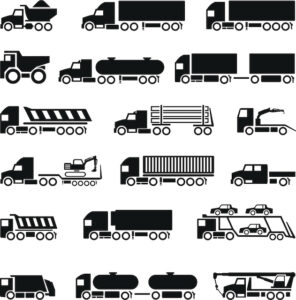
Fuel tank problems could lead to engine failures, fire breakouts, or create backup generators to fail when they’re needed the very most.
Imagine yourself driving on the highway and suddenly being stranded because of a fuel leak. Fuel tank problems are a bit more of a common issue than you may think. Fuel systems around the world all encounter issues that allow water to go into the tank. In the worst case, fuel tank problems could lead to engine failures, fire breakouts, or create backup generators to fail when they’re needed the very most. However, to help you avoid expensive breakdowns and keep your vehicles in the best shape, we will share common fuel tank problems and offer other practical tips. Read on to learn more!
Rust and Corrosion
Corrosions in fuel tanks, especially ones made of metal, happen due to a chemical reaction between the metal and fuel in the environment. Fuel additives could speed up corrosion, especially within older vehicles, while water contamination in fuel tanks also helps create a corrosive environment. Not to mention, contact between different metals in a fuel tank and neglecting consistent upkeep allows rust to form. You may notice signs of corrosion in the form of rust within the fuel filter, fuel leaks, a musty and metallic smell, poor engine performance, and issues starting the engine. Some ways to treat and prevent corrosion:
- Using rust inhibitors and protective coatings inside a fuel tank
- Consistently clean and drain the tank to remove both debris and water
- Add fuel additives to help prevent corrosion
- For smaller rust spots, scrape them off and apply rust converters
- For extreme amounts of rust, use a rust remover
If you notice serious rust, leaks, and other serious performance problems, see a mechanic for repairs and replacements. In the event you have got rental fuel tanks, get in touch with a rental service for both repairs and replacements.
Fuel Contamination
Fuel tank contamination could be caused by rain and condensation entering through the filler neck or vent. It typically occurs in humid and warm conditions. Contamination symptoms include engine misfires, reduced performance, clogged fuel filters, and challenges starting a vehicle. Here is how you could remove fuel contamination:
- Empty out the fuel tank and clean it to remove all contaminants
- Use a degreaser specifically manufactured for fuel tanks to clear off deposits and improve the fuel flow
To prevent contamination in fuel tanks altogether you have to use high-quality fuel, keep your tank sealed, and add a fuel stabilizer during longer storage periods.
Partner with Howard Energy, Inc. for Alternative Fuel Supply and Services
We’ve moved! Howard Energy is now located at 34 Thomas Ave, Brooklyn, MD 21225.
At Howard Energy, we fully understand how your business depends on a reliable and steady supply of gasoline and diesel fuel to keep your operations at its peak. As a family-owned, commercial full-service gas and diesel fuel supplier, Howard Energy has been serving companies across Maryland, Washington DC, and Northern VA for over 25 years.
Our team of experts has a thorough knowledge of the petroleum industry to devise commercial and retail fueling solutions. As a result, we use our keen insight to build strong partnerships with commercial trucking, construction, manufacturing companies, and more. Howard Energy is proud to bring our products and services to gas stations, car dealerships, marinas, and beyond – 7 days a week with no surcharge on holidays or weekends.
If you need cost-effective and convenient wholesale fuel and related fuel tank storage or monitoring services, contact us to get started. Call us at 410-647-1500, and visit our website. Stay connected with Howard Energy on Facebook, Twitter, and LinkedIn.
